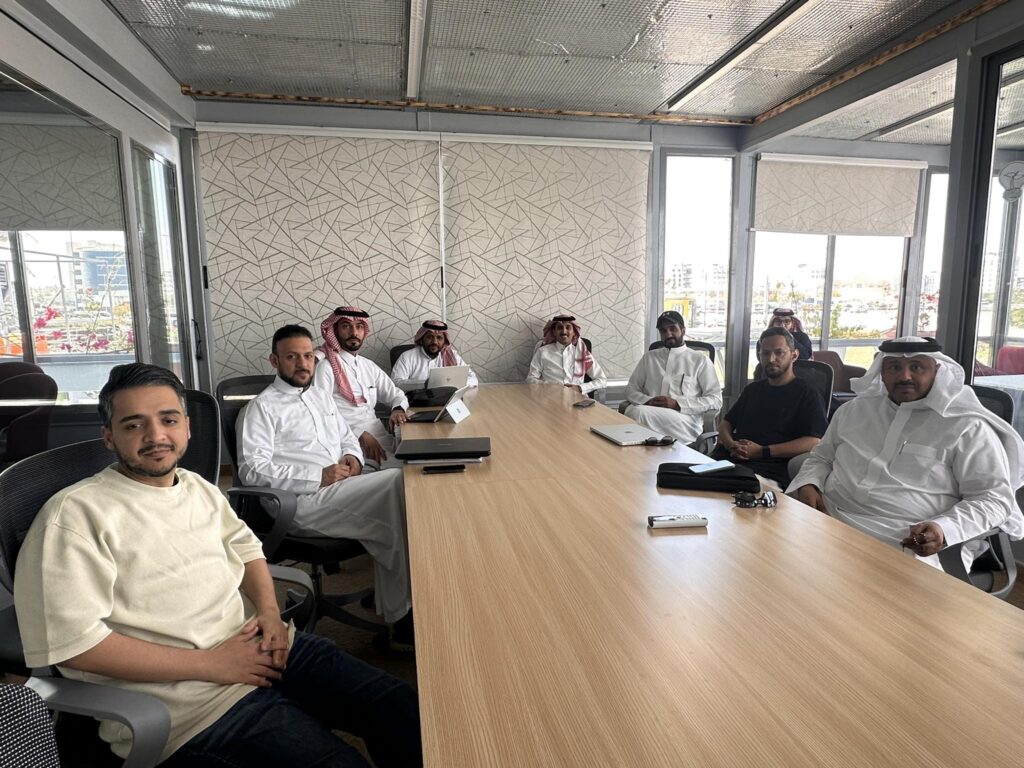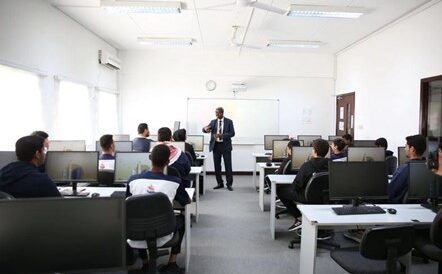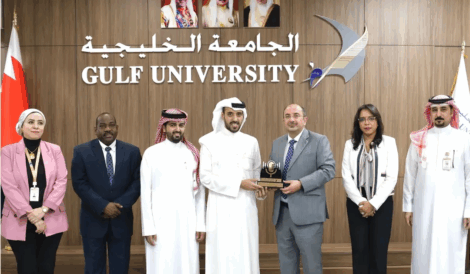“Gulf University Achieves Progress in Digital Transformation”
AlFiras: Digital Transformation Is a Strategic Priority
Allaymoun: The Project Deepened Students’ Understanding of Institutional Transformation
A recent research project conducted by MBA students in the Digital Transformation Track at Gulf University has showed notable progress in the university’s academic digital services. The study recommends launching a dedicated platform for generating and tracking innovative ideas. Gulf University President, Prof. Mohanad AlFiras, affirmed that the recommendations would be considered within the university’s strategic digital transformation plan.
Dr. Mohammad Hamad Allaymoun, Professor of Digital Transformation in the MBA program, stated that this initiative reflects Gulf University’s commitment to integrating academic learning with practical, real-world application.
The study also identified opportunities for improvement in areas such as internal process automation and expanding the culture of digital innovation across faculty and administrative staff.
Professor AlFiras emphasized that the findings support the university’s vision of developing a smart digital infrastructure aligned with the evolving demands of modern higher education. He reiterated that innovation and digital transformation are central to the university’s strategic vision, aimed at building a technologically advanced learning environment that fosters creativity and critical thinking.
He added that the university has already begun reviewing current digital initiatives for further enhancement and is working to incorporate the project’s recommendations into its upcoming operational plans.
Highlighting the role of graduate students, AlFiras noted that Gulf University relies on its postgraduate cohort to develop meaningful solutions to contemporary challenges, stressing that their involvement in institutional performance evaluations is part of preparing them as future decision-makers.
For his part, Dr. Mohammad Hamad Allaymoun explained that students applied internationally recognized tools and methodologies to assess the university’s digital transformation maturity. The study included analysis of the university’s digital infrastructure, innovation practices, and strategic readiness for digital change.
He noted that the project was based on global assessment frameworks such as the Deloitte Digital Maturity Model and the Organizational Innovation Framework, which were adapted to suit the university’s local context.
Students conducted interviews with academic and administrative staff and reviewed current digital initiatives to develop a comprehensive analysis of the university’s digital ecosystem.
“We divided the students into specialized teams, each focusing on key areas such as technological infrastructure, digital culture and institutional readiness, data utilization and smart analytics, innovation and idea generation, and digital engagement with students and the community,” Allaymoun added.
He noted that the students presented practical and implementable recommendations, including enhanced integration between digital systems, the launch of a platform for innovation tracking, the development of KPIs for measuring digital maturity, and the introduction of specialized training programs in digital transformation.
Dr. Allaymoun stressed that such partnerships between students and institutions generate real value for both sides and contribute to the development of competent digital leaders.
He emphasized that this hands-on experience provided students with a comprehensive institutional understanding of digital transformation, moving beyond abstract theory.
The project also underscored the importance of design thinking and cross-disciplinary collaboration in the success of digital transformation initiatives within academic institutions.
Dr. Allaymoun concluded by acknowledging the vital role played by the university’s administration in the success of the project, especially in facilitating access to data, resources, and a supportive environment for thorough academic analysis.






